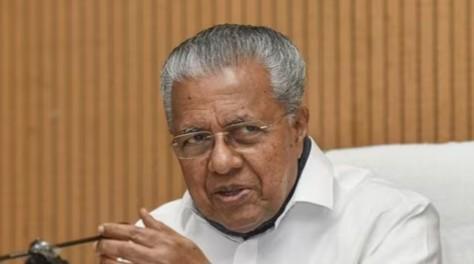
Attack on Federalism: Kerala CM on Bills to Remove Jailed PM, CMs
The political landscape of India is witnessing a new wave of controversy with the recent introduction of the Constitution (130th Amendment) Bill, 2025, in the Parliament. The Bill, which aims to remove Prime Ministers, Chief Ministers, and Ministers who have been arrested or detained for at least 30 days, has been strongly criticized by Kerala Chief Minister Pinarayi Vijayan, who has termed it as a “blatant attack on federalism and the rights of states”.
Vijayan’s criticism is not unfounded. The Bill, if passed, would give the Central government unprecedented powers to remove elected leaders of opposition-ruled states, thereby undermining the very fabric of federalism. The Chief Minister’s concerns are echoed by many experts and opposition leaders who see this Bill as a direct attack on the autonomy of states and a means to destabilize non-BJP governments.
According to Vijayan, the Bill seeks to “destabilize non-BJP governments by weaponising central agencies and jailing opponents on false charges”. He believes that this move is a clear attempt to undermine the democratic process and silence opposition voices. The Kerala Chief Minister’s stance is rooted in the understanding that the Bill would give the Central government the power to remove elected leaders who are critical of its policies or who refuse to toe the line.
The implications of this Bill are far-reaching and have significant consequences for the democratic process in India. If passed, it would give the Central government the power to remove Chief Ministers and Ministers of opposition-ruled states, thereby undermining the autonomy of these states. This would be a clear violation of the principles of federalism, which are enshrined in the Constitution of India.
The Bill is also seen as a means to silence opposition voices and gag critical voices. By giving the Central government the power to remove elected leaders who are critical of its policies, the Bill would stifle dissent and create a climate of fear. This would be a blow to democracy, which thrives on diversity of opinion and open debate.
The Kerala Chief Minister’s criticism of the Bill has been echoed by many opposition leaders and experts. Many have argued that the Bill is a clear attempt to undermine the autonomy of states and silence opposition voices. The Bill has been seen as a means to consolidate power at the Centre and undermine the democratic process.
The Bill has also been criticized for its lack of transparency and accountability. There is no clear mechanism outlined in the Bill for how the Central government would determine whether a Prime Minister, Chief Minister, or Minister is fit to continue in office. This lack of transparency and accountability raises serious questions about the Bill’s intent and its potential impact on the democratic process.
In conclusion, the Constitution (130th Amendment) Bill, 2025, is a serious attack on federalism and the rights of states. The Bill seeks to undermine the autonomy of states and silence opposition voices by giving the Central government the power to remove elected leaders who are critical of its policies. The Bill’s lack of transparency and accountability raises serious questions about its intent and its potential impact on the democratic process.
As the Bill moves forward, it is essential that opposition parties and civil society organizations come together to resist this attack on federalism and the democratic process. It is crucial that the Bill is thoroughly debated and examined in a transparent and accountable manner to ensure that the rights and autonomy of states are protected.






